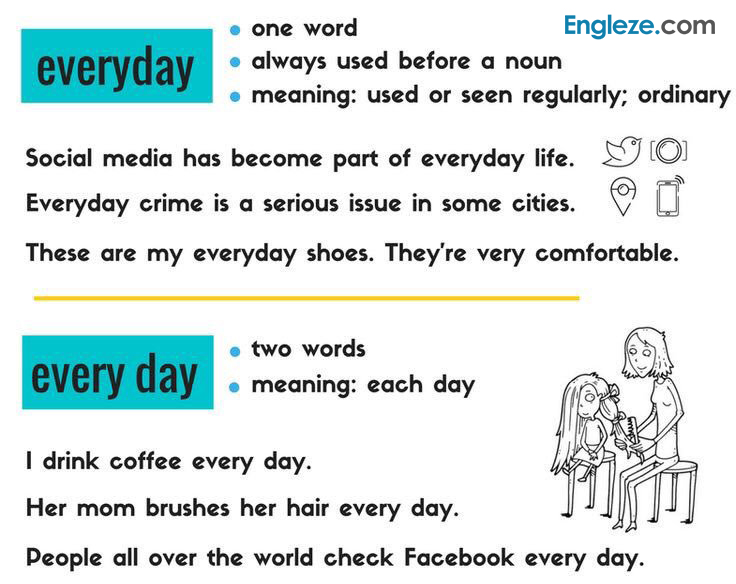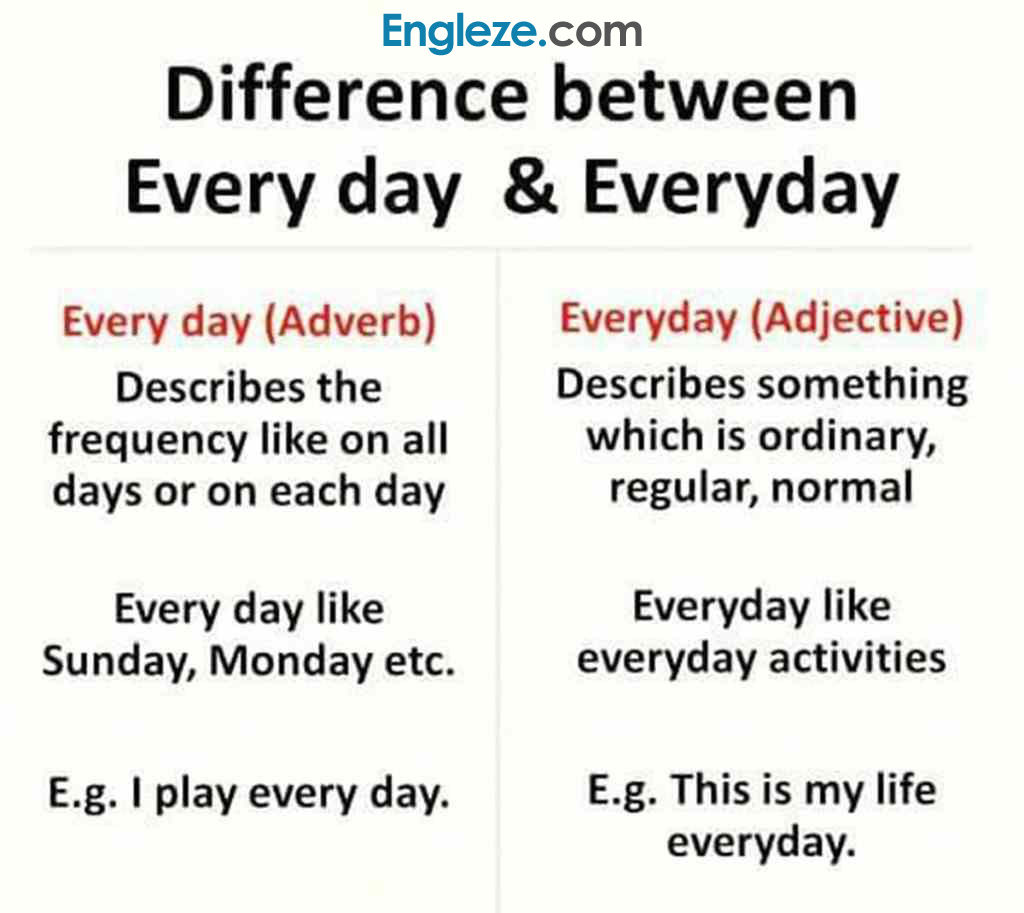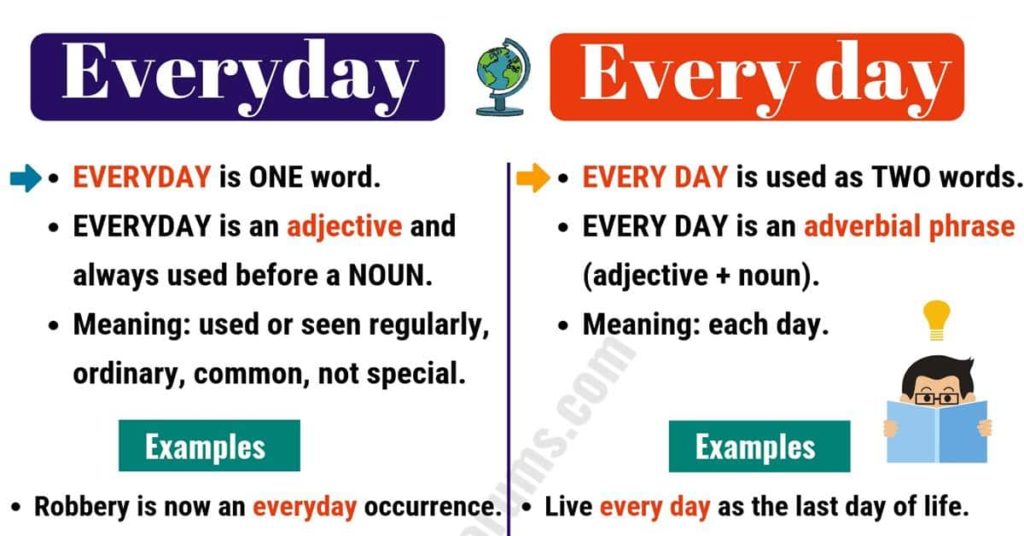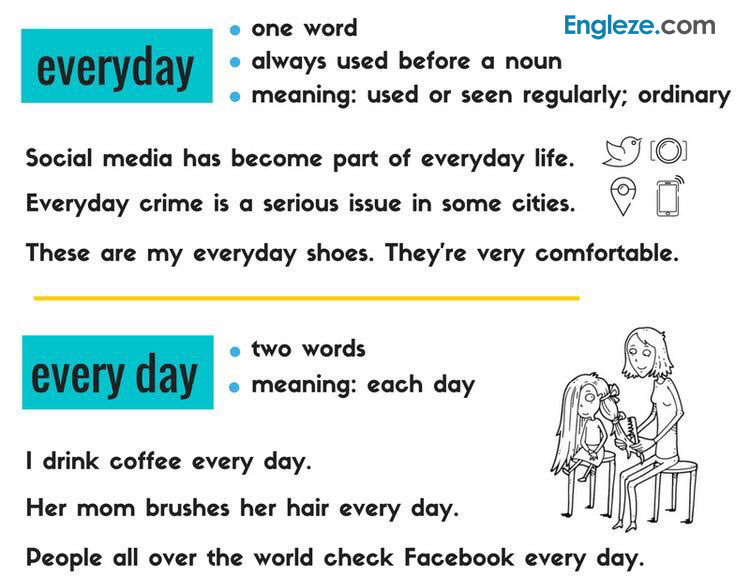Compound words, like anytime and any time, sometimes don’t have the same meaning as the individual words they comprise. It’s a case of the whole being different from the sum of its parts. Everyday and every day are like that—everyday (with no space) doesn’t mean the same thing as every day (with a space). In speech, however, they do sound the same. No wonder it’s so easy to confuse them with each other. What does each phrase mean and how do you use them?
- Everyday is an adjective we use to describe something that’s seen or used every day. It means “ordinary” or “typical.”
- Every day is a phrase that simply means “each day.”
Difference Between Everyday and Every Day
The everyday vs. every day dilemma is not an uncommon one. These two words suffer from the same problems as anytime and any time, or anyone and any one—compounds can be a source of much confusion. So let’s see how we define and use everyday and how we define and use every day.

Everyday
Everyday (as one word) is an adjective. Thesauruses list average, mundane, ordinary, and standard as synonyms. “Everyday clothing,” then, refers to the ordinary clothes you wear on regular days, as opposed to outfits designated for special events or holidays. Occasionally, people use everyday as a noun—it’s a shorthand way of referring to their everyday routines.
Every Day
Every day means “each day.” The easiest way to remember this is to think about the space separating the two words. Because of that space, “every” is simply an adjective modifying the word “day.” If you paired every with any other word, it would mean each—every day means “each day”, just like “every word” means “each word.” There’s nothing more to it.
If you’re still having trouble distinguishing between everyday and every day and you don’t know when to use which, you’ll be alright as long as you remember that in every day you can easily replace “every” with “each.” So, if you’re talking about how often you wear green pants, you’d say “I wear green pants every day. It still makes sense if you replace “every” with “each”: I wear green pants each day. On the other hand, you can’t say “I wear pants eachday” because there’s no such word.
Examples: Everyday and Every Day in Sentences
It’s sweaty foot season, so this week on Kinja Co-Op, we’re on the hunt for the best everyday men’s socks. —Lifehacker
For most Brazilians, everyday crime is a much more imminent threat than terrorism.—The New York Times
But the real point is this: You need to think and act like you are selling your business, every day. —The Globe and Mail
But people do it all across the globe every day. —The Huffington Post

Everyday and every day are commonly confused in English. There’s no significant difference in pronunciation, but using the wrong one when writing is a mistake in the everyday English you use every day.
Everyday
Everyday is an adjective that means commonplace, ordinary, or normal.
These shoes are great for everyday wear.
You shouldn’t wear an everyday outfit to the wedding.
Don’t use the everyday dishes – it’s a special occasion.
Every day
Every day means “each day.”
I go to the park every day.
I have to work every day this week except Friday.
Every day I feel a little better.







